Do You Need a Tooth Extraction Specialist?
Tooth extractions are typically a last resort to preserve your dental health.

Severe Tooth Decay
If the decay has spread to the center of the tooth and conventional treatments – like fillings and crowns – are not possible, a tooth extraction may be the best solution.

Reduce the Risk of Infection
Severely decayed teeth can be a source of infection that spreads throughout the mouth, weakens the immune system, and increases the risk of future problems.

Overcrowding
Teeth slowly shift over time. An extraction may be necessary to make sure the teeth stay properly aligned – or to prepare for an orthodontic procedure.
The Tooth Extraction Process
at The Dental House
01
Pre-Procedure Assessment
Dr. Vu will conduct a thorough analysis of your teeth, review your dental history, and take x-rays to determine if a tooth extraction is the right treatment – and plan accordingly.
02
Local Anesthesia
The first step in getting a tooth extracted is to ensure your comfort throughout the procedure. This involves using a numbing agent around the area where the tooth will be extracted.
03
Tooth Loosening and Extraction
Dr. Vu will gently rock the tooth back and forth with specialized instruments to loosen it from the jaw – and remove it.
04
Pack the Area
Once the tooth extraction is complete, a blood clot will form where the tooth used to be. A gauze pad will be packed into the socket to stop the bleeding. We may use self-dissolving stitches to close the gum if necessary.
05
Post-Extraction Care
The Dental House will provide a list of instructions to make sure the area heals properly. This includes: not rinsing or spitting for 24 hours, not drinking through a straw, and not eating solid foods until the socket has healed.
06
Follow-Up Appointment
We may schedule a follow-up appointment in the coming weeks to monitor the healing process and make sure there are no complications.
The Dental House Mindset

No Judgment
When you visit The Dental House, you’re entering a zero-judgment zone. Our mission is to provide you with exceptional dental care and long-term solutions. No gasps, lectures, or anything else.

Comfort-First Care
Getting a tooth extracted is by no means a pleasant process, but it doesn’t have to be a painful one. We take all measures to make our patients comfortable throughout the procedure.

Educational Dental Support
We don’t provide ANY dental care without explaining why we’re doing it. Dr. Vu takes the time to discuss your symptoms and why a tooth extraction is the best option.

Flexible Payment Options
No one should neglect critical dental care due to budgetary issues. That’s why we offer patient-friendly payment options to make sure you get the support you need.
Frequently Asked Questions
Do you offer same-day tooth extractions?
This depends on how severe your needs are. If it’s an emergency – or you’re in a lot of pain – we will do everything possible to accommodate same-day tooth extractions.
How long does it take to recover from a tooth extraction?
Recovery time from a tooth extraction can vary. The tooth extraction healing stages depend on the complexity of the procedure – as well as your healing ability. The initial healing phase involves the socket beginning to heal, and it takes roughly one to two weeks for the discomfort to subside. It can take several additional weeks for the area to completely heal and the gum tissue to regenerate – assuming you take proper care of the area.
How painful are tooth extractions?
The level of pain during a tooth extraction is generally low with local anesthesia. This completely numbs the area so you don’t feel any sharp pain. As the anesthesia wears off, it is common to experience some discomfort and swelling.
The intensity of pain depends on the complexity of the extraction, such as whether it was a simple pull or a more involved surgical removal. If necessary, we may prescribe a pain medicine.
What to eat after a tooth extraction?
We recommend sticking to soft, easy-to-chew foods to avoid impacting the extraction site – yogurt, pudding, applesauce, broth-based soups, and smoothies. Avoid hot foods and beverages, as well as hard, crunchy, or sticky foods. As the healing progresses, you can gradually introduce more solid foods into your diet.
What is the most common complication of tooth extraction?
Dry socket. This is a painful condition that occurs when the blood clot at the site of the extraction fails to develop properly or becomes dislodged. This exposes the bone and nerves, leading to both pain and a longer healing process. If you’re experiencing dry sockets, get in touch with The Dental House immediately for an appointment.
Schedule Your Appointment
Talk to the Dental House today.



